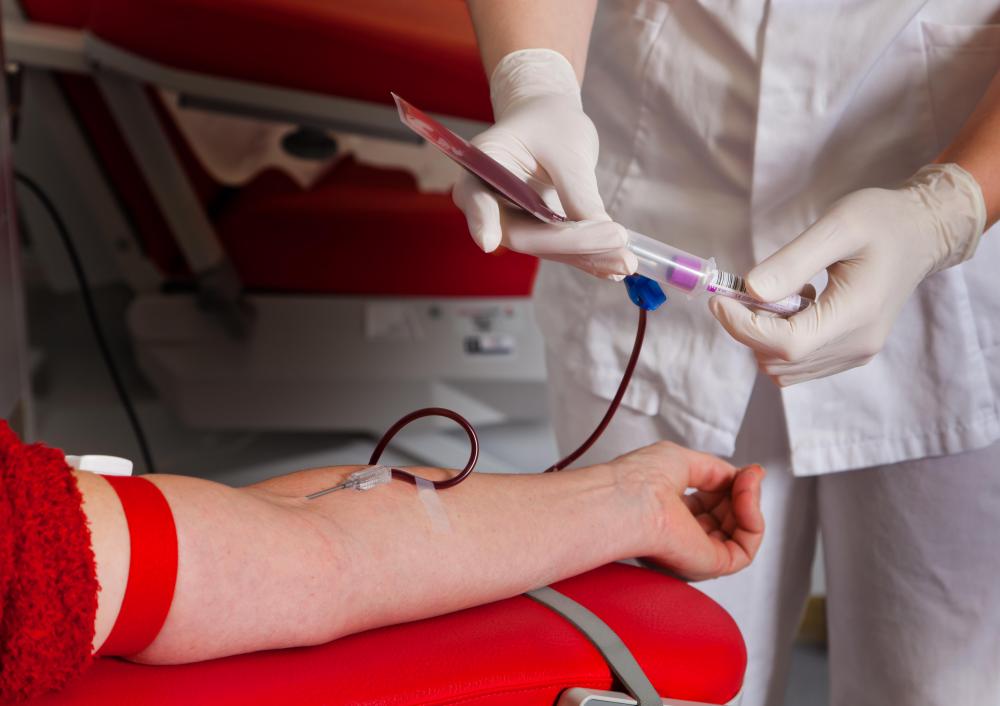At WiseGEEK, we're committed to delivering accurate, trustworthy information. Our expert-authored content is rigorously fact-checked and sourced from credible authorities. Discover how we uphold the highest standards in providing you with reliable knowledge.
What is Hepatitis a Immunoglobulin?
Hepatitis A immunoglobulin is a serum administered to a patient through an intramuscular injection that contains antibodies capable of fighting the hepatitis A virus. The immunoglobulin can be administered to those at risk of a hepatitis A infection to prevent them from obtaining the infection. It can also be administered to those already infected, within a certain time frame, to fight the hepatitis A virus.
This immunoglobulin is made from human blood plasma obtained from people who have had the hepatitis A virus. The plasma is “pooled” and prepared in such a way that the viruses are rendered inactive but the antibodies that were fighting the virus survive. The solution is then sterilized and processed into a serum that contains a high concentration of active hepatitis A antibodies and no hepatitis A viruses. This serum is then injected into a patient’s muscular tissue, transferring the hepatitis A antibodies to the body.

For people at immediate risk of contracting a hepatitis A infection, such as from an infected person at home or work, hepatitis A immunoglobulin can be administered as a protective measure. People who plan to travel to areas where infection is possible can also have an injection of hepatitis A immunoglobulin to protect them after they arrive at their destination. The protection afforded by hepatitis A immunoglobulin only lasts from one to two months after administration.

Hepatitis A immunoglobulin can also be used to treat people who have already been infected with the hepatitis A virus or have come into contact with it but have not yet been diagnosed with the infection. The effectiveness of the treatment depends, however, on how soon it is administered following exposure to the hepatitis A virus. If administered within two weeks of contact or infection, the treatment can be highly effective. Hepatitis A immunoglobulin is the treatment of choice for patients who have come into direct household contact, or sexual contact, with an infected person but have not yet begun to show symptoms of hepatitis A.

In 1995, a new vaccine for hepatitis A was cleared for general use. This vaccine was created by adapting cells to hepatitis A and growing them in a culture. When used as a protective measure, the hepatitis A vaccine is expected to last as long as 20 years, as opposed to the one to two months for Hepatitis A immunoglobulin. Therefore, the vaccine is the most often used method of protection, although hepatitis A immunoglobulin remains the treatment of choice for those already, or probably, infected with the hepatitis A virus.
AS FEATURED ON:
AS FEATURED ON:














Discuss this Article
Post your comments